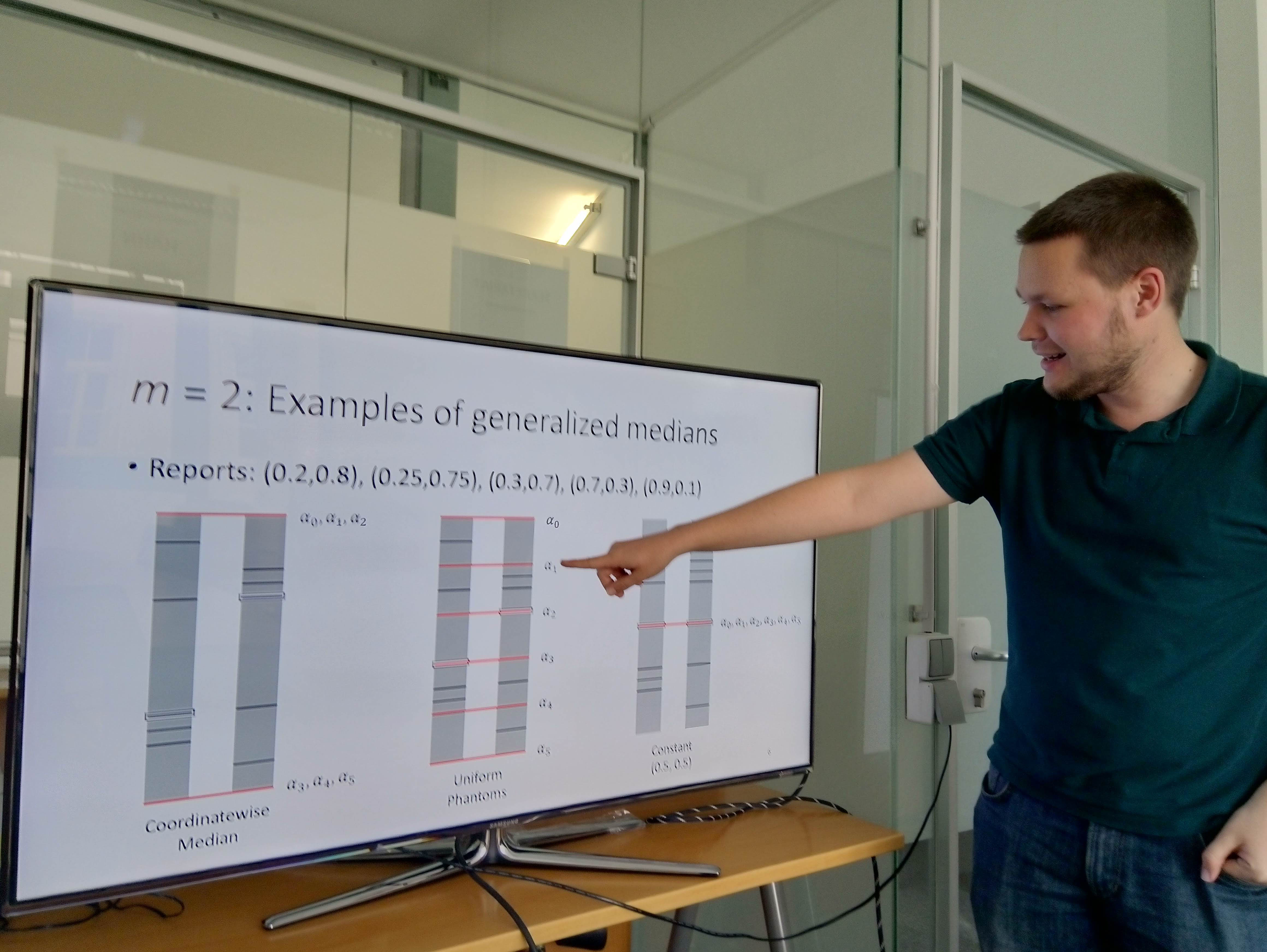Dominik Peters
Truthful Aggregation of Budget Proposals
VCLA and WPI hosted a talk by Dominik Peters
| DATE: | Tuesday, March 19, 2019 |
| TIME: | 14:00 c.t. |
| VENUE: | FAV 01 C (Seminarraum 188/2), 1. Floor (access via "Stiege 4") |
Abstract
We consider a participatory budgeting problem in which each voter submits a proposal for how to divide a single divisible resource (such as money or time) among several possible alternatives (such as public projects or activities) and these proposals must be aggregated into a single consensus division. Under _1 preferences—for which a voter’s disutility is given by the _1 distance between the consensus division and the division he or she most prefers—the social welfare-maximizing mechanism, which minimizes the average _1 distance between the outcome and each voter’s proposal, is incentive compatible [Goel et al. 2016]. However, it fails to satisfy a natural fairness notion of proportionality, placing too much weight on majority preferences. Leveraging a connection between market prices and the generalized median rules of Moulin [1980], we introduce the independent markets mechanism, which is both incentive compatible and proportional. We unify the social welfare-maximizing mechanism and the independent markets mechanism by defining a broad class of moving phantom mechanisms that includes both. We show that every moving phantom mechanism is incentive compatible. Finally, we characterize the social welfare-maximizing mechanism as the unique Pareto-optimal mechanism in this class, suggesting an inherent tradeoff between Pareto optimality and proportionality.
(joint work with Rupert Freeman, David Pennock, Jenn Wortman Vaughan)

